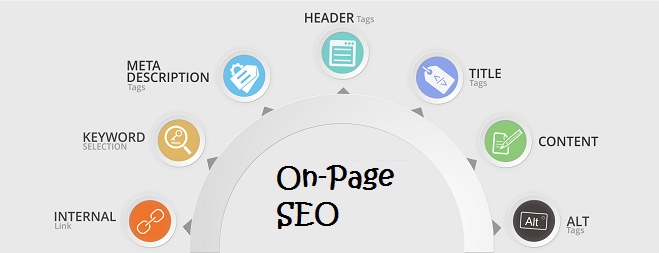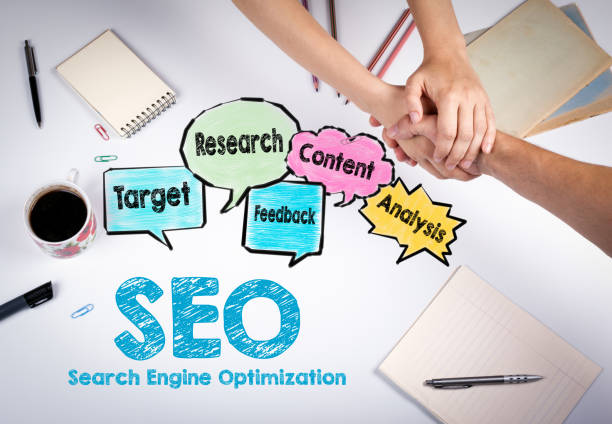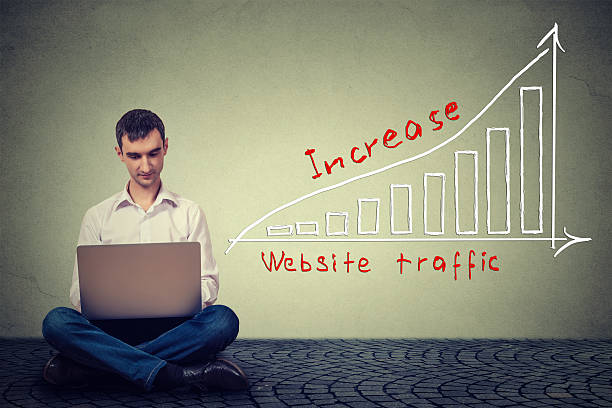On-Page SEO, A Complete Guide About It!

Do you want to know how you can optimize your web pages ideally? Yes, then you’re at the right place. For any SEO expertise or website operator, the first step they should look into is On-page optimization. You can say it is a mainspring of every well-rounded SEO strategy. And for every website operator or SEO, being on the first page of the Google can be a game-changer if you rank for the right keywords. Sounds interesting right!
So do you want to know more about On-page optimization? I have built this guide to help you. Just keep on reading this article.
Now let’s get started.
What is On-Page SEO?
On-page SEO is also known as the “On-page site”. It is an act of optimizing different parts of your website that helps you get a higher ranking in the search engine result pages on Google. On-page SEO is very significant for you because it lets Google know about your website activities and how you provide value to your customers and visitors. It also helps your site to be optimized for both human eyes and search engine bots.
Have you wondered why it is called On-page SEO? Because the adjustments and changes you make to optimize your website can be seen by visitors on your page. It means any changes made by you will be visible on your site and your visitors and customers can see them easily.
Now, let’s discuss the elements of On-page SEO.
On-Page SEO Elements
Following elements should be kept in mind while doing On-page SEO.
1. High quality-page content
Page content is the core of main On-page SEO. It helps readers and search engine know what your website and business are all about. To create high-quality content, you first need to choose relevant keywords and topics for your website. While writing high-quality content you should incorporate short and long-tail keywords, write your specific buyer’s persona, add relevant and engaging visual contents, etc.
2. Page titles
The most significant element of SEO is your content page title. To ensure your page rank, you need to incorporate your keywords as naturally as possible in your each page title. Your title should of 70 characters (as per the latest update of Google). Make sure not stuff titles with many keywords.
3. Headers
Headers are also called body tags. These tags help the search engine know what part of your content is more important and relevant. They also organize content for your readers. Try to use important keywords in your headers. Put your most important keywords in (h1) and (h2).
4. Meta description
It is the short description that appears in green color under the title in search results. It can help you know whether your page is clicked on or not. However, it’s not an official ranking factor for search engine but it’s an important part while doing On-Page SEO. Make sure you keep your Meta description under 160-220 characters.
5. Image alt-text
This component of SEO lets Google and search engine know what your images are all about. It is important because now Google also delivers image-based results like text-based results. While adding image alt-text, make sure you add 125 character descriptions, make it descriptive and specific, and don’t do keyword stuffing much.
6. Use SEO-friendly Page URLs
Your page URLs should be easy to search you on Google. It should be simple enough to digest for readers and search engines. To write relevant URLs then try to remove extra and unnecessary words, use only one or two keywords, and use HTTPS if possible.
7. Site speed
Your website speed is the important ranking factor when it comes to on-page SEO, page speed counts a lot of time. Whether your website is viewed on mobile device or desktop, your site must be able to load it quickly.
8. Internal linking
Internal linking is very important for On-page SEO as it sends readers to other pages on your website, keeping them around longer and thereby telling Google your site is valuable and helpful. Also if visitors stay longer on your site then Google will crawl and index your site pages.
Impact of content on On-page SEO
Content is the most indispensable part of On-page SEO. It is what brings quality traffic to your site. If we see then today every web user is looking for quality, relevant, interesting, informative and engaging contents that fulfill their needs. So it’s very important for you to produce contents in different forms that readers must consume in such as:
- Blogs contents
- Videos and infographics
- Podcasts
- Whitepaper
- EBooks
- Interviews
- Web page copy
- Case studies
- Reviews
- Original research
- Instructional articles
Make sure you avoid producing contents that require log in, copyrighted material, and certain slide shows. People avoid reading such articles which require formality to fulfill.
Final Thoughts!
On-page SEO is very important to the practice of optimizing individual website page in order to rank higher in Search Engine Result Page (SERP) on Google. Without on-page SEO your site can’t get a good rank on Google. You must implement the above On-page SEO elements in your website to get more relevant traffic to your site.
Make sure you have thoroughly read this a complete On-page SEO guide as a living, breathing documents for your SEO strategy. You can also take help from digital marketing agency. If you are thinking so, kindly get in touch with us till then keep reading.


